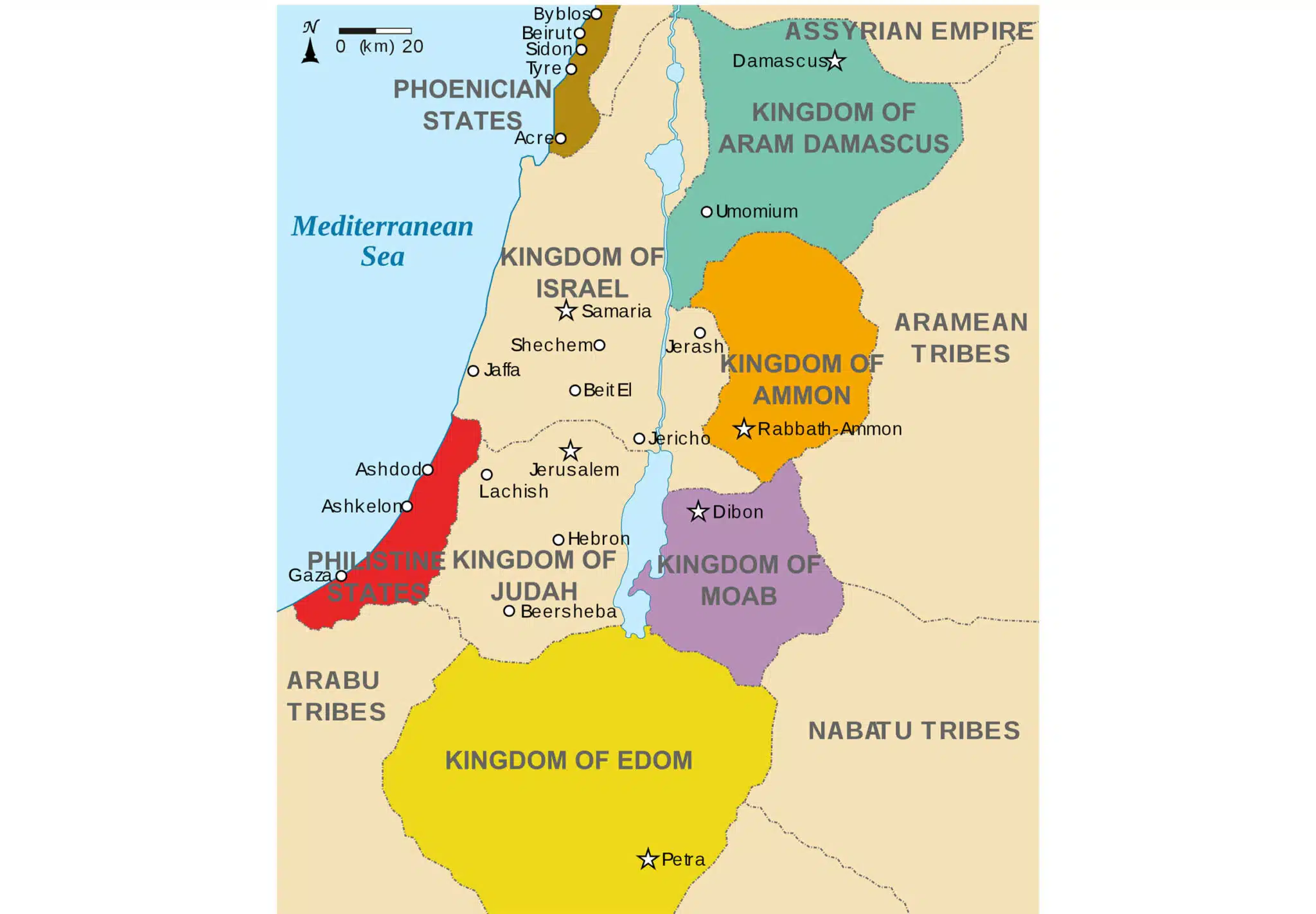Amos explains how God challenges the Israelites to prepare to meet Him in a terrifying confrontation of judgment because they refuse to repent. God would enforce the terms of the covenant upon His covenant people, as He had promised, and as they had agreed.
The Israelites refused to repent and turn from their wicked ways even though God had caused them to experience famine, drought, crop failure, locusts, plagues, war, and overthrow (vv. 6–11). God had brought these calamities upon Israel according to His word, which He had given to them as a part of the covenant between God and Israel (Leviticus 26:14–39; Deuteronomy 28:15–61). Consequently, God summed up the severity of His judgment and challenged the people, saying, Therefore thus I will do to you, O Israel; because I will do this to you, prepare to meet your God, O Israel.
In the book of Exodus, the Israelites met the LORD, when He descended upon Mount Sinai in fire (Exodus 19:18). At that time, Moses “brought the people out of the camp to meet God” to receive the Ten Commandments (Exodus 19:17–19). The meeting in Exodus was a special divine intervention in which the LORD visited His people to provide them with His covenantal principles by which they were to live all the days of their lives. But in the case of Amos, the Israelites were to prepare to meet their God in judgment because they had violated the terms of God’s laws. They had broken their covenant or contractual agreement. God had warned them, given them “notice and time to cure” as we might say in modern contractual terms. This was as He had promised to do. But they had not listened, nor heeded the notice. Therefore it was now time to enforce the contract provisions for non-compliance. It was time to “foreclose.”
The Israelites were summoned to get ready to meet God in a terrifying confrontation of judgment because they refused to listen to His covenantal instructions. The LORD had long before promised that if the Israelites failed to keep His covenant precepts, He would judge them severely (Leviticus 26:14–39; Deuteronomy 28:15–61). Despite all the warnings, the Israelites had not returned to the LORD (4:6, 8, 9, 10, 11).
Amos concluded the chapter by spelling out the reason the Israelites would fall under God’s judgment. It is because God is all-powerful and majestic. He is the one who forms mountains and creates the wind and declares to man what are His thoughts. God is also the one who makes dawn into darkness and treads on the high places of the earth. The LORD God of hosts is His name. The self-existent and eternal God who created everything was going to judge Israel because they persisted in sins. We saw in verses 4-5 that God was being treated by those in Israel like an idol that could be manipulated. They will find out otherwise.
Amos sentenced Israel in language that sounds like an invitation to come into the LORD’s presence. While the Israelites could have expected to meet with God to receive His blessings, Amos told them quite the contrary. They were to meet God in judgment. Such an invitation would have been shocking to Israel, but the prophet used the language to provoke deeper awareness of Israel’s guilt and misbehavior. As is always the case with God’s judgement, this too will end up being in Israel’s long term best interest.
Biblical Text
12 “Therefore thus I will do to you, O Israel;
Because I will do this to you,
Prepare to meet your God, O Israel.”
13 For behold, He who forms mountains and creates the wind
And declares to man what are His thoughts,
He who makes dawn into darkness
And treads on the high places of the earth,
The Lord God of hosts is His name.
Check out our other commentaries:
-
Hebrews 8:9-13 meaning
The law was not useful in changing men’s hearts, but Christ has put God’s law into our hearts and has restored our relationship with God....... -
Jude 1:3-4 meaning
Jude felt this letter was necessary to write to encourage his readers to fight for the faith. There are certain unnamed false teachers who have...... -
Psalm 27:1-3 meaning
Placing one’s trust utterly in the Lord for all of life’s experiences results in a deeper understanding about life, the good as well as the...... -
Micah 2:6-11 meaning
Micah declared an oracle of judgment against false prophets whose teaching justified the seizing of other people’s land by wealthy land barons....... -
Deuteronomy 24:16 meaning
Moses forbade the Israelites from punishing one family member for the actions of another member of the family. Each person had agency to choose, and......



